This article was co-authored by Marc Kayem, MD and by wikiHow staff writer, Jessica Gibson. Dr. Marc Kayem is a board certified Otolaryngologist and Facial Plastic Surgeon based in Beverly Hills, California. He practices and specializes in cosmetic services and sleep-related disorders. He received his Doctorate in Medicine from the University of Ottawa, is board certified by the American Board of Otolaryngology, and is a Fellow of the Royal College of Surgeons of Canada.
There are 13 references cited in this article, which can be found at the bottom of the page.
This article has been viewed 43,266 times.
All people experience brief moments of sleep paralysis during sleep. Normal sleep paralysis is what keeps the dreamer from acting out dreams. But for some, sleep paralysis can be a scary condition where the sleeper can't speak or move either while falling asleep or when waking from sleep. Occasionally, hallucinations (seeing things, hearing things, or feeling things) accompany sleep paralysis. For most people, sleep paralysis doesn't disturb sleep unless it happens frequently or is so upsetting that it's hard to fall back asleep. Sleep paralysis can last from a few seconds to a few minutes. Fortunately, there are several things you can do to prevent this condition.[1]
Steps
Improving Sleep Hygiene
-
1Make a relaxing sleeping environment. Designate your bed as a place only for sleep and sexual activity. Don't watch TV or read in bed. Your bed should be firm enough to give you support, but still be comfortable. Consider placing a few drops of lavender essential oil on or near your pillow to create a calm, relaxing environment.[2]
- While specific sleep disorders are treated differently, good sleep hygiene can improve anyone's sleep (even people without a sleep disorder).
- Reduce the light in your room with blackout curtains, removing sources of ambient light and possibly wearing a sleep mask.
- Keep your room at a comfortable temperature. It is recommended you keep your room at about 65°F (18.3°C) when sleeping.[3]
- Use a fan, earplugs, or a sound machine to neutralize any disruptive sounds that might wake you up.
- Keep the use of electronic devices, such as smartphones, tablets, laptops, and TV, to a minimum in the evening. These devices emit something called blue light, which can make it difficult for you to fall asleep.
-
2Avoid stimulants and stress before bed. Start winding down before you go to bed. Avoid eating within two hours of going to bed and don't drink coffee (especially after noon), caffeinated drinks, or alcohol. These can keep you awake or cause discomfort that prevents you from sleeping. You should also avoid strenuous exercise at night. If you're taking any medications, talk with your doctor to determine if any are causing sleep issues.[4]
- Always tell your physician if you're using herbs and supplements. These can interact with prescription medicines.
- Instead of strenuous evening exercise, go for walks, do weight training, or simply stretch. Save the strenuous activity for the morning or afternoon.
- Try not to go to bed when you're stressed out.[5] Try writing out your thoughts in a journal and tell yourself you'll deal with the issue in the morning.
Advertisement -
3Relax and unwind before bed. Create a simple sleep routine that you can follow. Be sure to include something relaxing, like taking a hot shower a few hours before you go to bed. While research is needed, many people believe this can increase melatonin secretion, making sleep come easier.[6] You may also want to listen to calming music or use white noise to help you sleep, especially if you live in a noisy area.
-
4Go to bed at the same time every night. Help your body develop consistent sleep habits by going to bed and waking at the same time every day. While this may be hard if you have a flexible work schedule, your body will begin to expect sleep at consistent intervals.[7]
- You can be a little flexible, but try not to deviate from your bedtimes and wake times by more than 30 minutes. For example, you may allow yourself to sleep in half an hour on the weekend.
- You should also try to wake up at the same time every day.
-
5Try progressive muscle relaxation. To prepare for a good night's sleep, gradually relax the muscles in your entire body. Start at your toes and tense the muscles of your toes for five seconds, then relax the toes for about 30 seconds. Then, move to your ankles and legs. Tense the muscles for five seconds and then relax them for 30 seconds. Move your way up toward your neck and finally your face.[8]
- Research has shown that relaxation techniques can reduce the frequency of sleep paralysis.[9]
- You might also relax by doing Tai Chi, Qigong, or yoga.
-
6Practice positive visualization. As you lay in bed, try to focus on positive things or experiences. For example, ask yourself if you can remember your favorite place (real or imagined) or your favorite memory. Then, visualize that place or memory being as detailed as possible. Try to remember the smells, sounds, and touches. Breathe deeply as you visualize to help you relax. Positive visualization can remove negative thoughts, preparing you for a restful night's sleep.[10]
- For example, if your memory or visualization is at the beach, you may want to play sounds of the ocean and hold a handful of sand. After some practice, you won't need the extra sounds or that sand, but to begin with, these “props” can be helpful.
Using Herbs and Supplements
-
1Make an herbal tea. To use an herb as a tea, boil water. Add either 1 teaspoon of loose, dried herb, 1 tablespoon of fresh herb or a tea bag to a cup of boiled water and let it steep for five to ten minutes.
- Strain if the tea if you used loose herbs and flavor it with honey or lemon if you like.
-
2Purchase quality supplements. Ask your pharmacist to recommend a reputable brand of supplements; the supplement industry is not regulated, meaning there is no guarantee you are getting the advertised product. Your pharmacist may know which companies are trustworthy. You should also look for verifiable contact information for the company and look for any seals of approval from the Natural Products Association (NPA), Consumer Labs or the US Pharmacopeia (USP). The manufacturer should follow Good Manufacturing Practices (GMP).[11]
- Always follow the manufacturer's instructions when taking supplements. You should also inform your doctor of any supplements you're taking.
- Buy only fresh supplements (check the expiration date).
-
3Try valerian as a tea or supplement. Valerian is a root that has the properties of a mild sedative, helping you fall asleep faster and more easily. Valerian has been used as a sleep aid for thousands of years, although it should not be given to children under 3 years old.[12]
- You may want to add honey, cinnamon, cloves, or lemon to valerian tea to improve the flavor.
- Valerian root may interact with prescription medications like antidepressants and antianxiety medications.
-
4Use passionflower as a tea or supplement. Passionflower is used to reduce anxiety and can also lower blood pressure. If you take blood pressure medications, talk to your doctor before supplementing. Passionflower has a light, pleasant taste, but you can flavor it with honey and lemon if you're making a tea.[13]
- Do not use passionflower if you're pregnant. It may induce uterine contractions.
- Since passionflower hasn't been studied in children, talk with a qualified healthcare professional to determine a safe dose to give your child.
-
5Take chamomile as a supplement or tea. Chamomile has traditionally been used to help induce sleep, although clinical studies are needed to support this. Chamomile is used to increase calm while reducing anxiety. When purchasing chamomile, look for German (which is more widely available) or Roman.
- Chamomile is safe for children, but dilute the tea with warm water (use ½ cup of tea and add ½ cup of water).
- Chamomile can interact with a number of prescription medications, so talk to a knowledgeable healthcare professional (your doctor or pharmacist) before using it.
-
6Use lemon balm as a tea or supplement. Lemon balm can also reduce anxiety and improve sleep quality, but should not be used by anyone with an overactive thyroid or anyone who is pregnant. Lemon balm has Generally Regarded as Safe (GRAS) status in the US and can be used with children older than 3 years old, but dilute the tea with warm water (use ½ cup of tea and add ½ cup of water).
- Lemon balm may interact with certain medications for thyroidism, HIV, and sleep issues like anxiety or insomnia. Talk with your doctor before supplementing.
-
7Take a melatonin supplement. Take 1 to 3 mg of melatonin one hour before bed. This "sleep hormone" can regulate your sleep cycles. Avoid taking melatonin every night, unless your doctor advises it. You can also try to increase the amount of melatonin in your system by drinking a glass of tart cherry juice.
- Melatonin may interact with prescription medications and should not be taken when pregnant or when nursing. Talk to your doctor or pharmacist before use.
-
8Take 5-hydroxytryptophan (5-HTP) supplement. This chemical is used by your body to make a neurotransmitter, serotonin. Serotonin is known to regulate mood and behavior, which may improve your sleep. Take 50 to 100 mg of 5-HTP every night before bed for six to 12 weeks, unless your doctor recommends otherwise.
- 5-HTP is not recommended for pregnant or nursing women.
Using Herbs For Children With Sleep Paralysis
-
1Make an herbal sleep sachet. You can fill a small sachet with herbs to help your child sleep. Simply fill a small cloth bag or small pillow case with the following herbs, tie it off, and place it next to your child's pillow:
- 1/2 cup hops
- 1/2 cup chamomile flowers
- 1/2 cup lavender flowers
- 1/2 cup lemon balm (melissa)
-
2Run a warm herbal bath or footbath. Help your child relax by running a warm (but not too hot) bath or filling a basin for a foot soak. Add one to two drops of chamomile essential oil or lavender essential oil into the water. These can calm your child and encourage sleep.[14]
- Avoid using essential oils for infants under three months old.
-
3Make an herbal balm. Create a massaging balm by mixing one to two drops of chamomile or lavender essential oil with 1 ounce of shea or castor oil. Mix the balm well and place a small amount of the scented oil on your child's temples.
- Massage can be useful in calming your child and relaxing sore muscles.
Recognizing Symptoms and Risks
-
1Recognize the primary symptoms. If you have sleep paralysis, the area of your brain that detects threats becomes more active and overly sensitive to stimuli. The temporary paralysis is caused by this oversensitivity.[15] To be diagnosed with sleep paralysis, you must be experiencing three of the following primary symptoms:
- Inability to move: This may feel as if some outside force is causing the paralysis.
- Feeling fear, dread, or anxiety because of the paralysis
- Being consciously awake during the paralysis
- Clear perception of surroundings: You may notice the time, the moonlight coming in through the window, what your partner is wearing and so on.
-
2Look for potential symptoms. In addition to primary symptoms, you may experience these symptoms:[16]
- A sense of overwhelming fear and dread
- A sense of another presence
- Pressure on the chest
- Difficulty breathing
- Laying on your back even if that is not your preferred position
- Visual, olfactory (smell) or auditory (sound) hallucinations. These may be combined with the sense of another presence.
- A feeling of impending doom or death
-
3Consider your risk for sleep paralysis. Studies estimate that sleep paralysis affects 5 to 40% of the population, affecting men and women of any age group, although most sleep paralysis begins during the teenage years. Risk factors for sleep paralysis include:[17]
- A family history of sleep paralysis
- Changing sleep schedules
- The existence of another sleep disorder like insomnia; narcolepsy; parasomnias such as sleepwalking or sleep talking, confusional arousals, bedwetting and sleep terrors; hypersomnias (excessive sleepiness)
- A history of depression, anxiety, panic disorder, post-traumatic stress disorder (PTSD) and bipolar disorder. These mental disorders were also associated with some of the more disturbing hallucinations.
- Sleep related leg cramps and Restless Leg Syndrome (RLS)
- Medications, including those used to treat anxiety and ADHD
- Drug and alcohol abuse
-
4Know when to see your doctor. If you don't notice a reduction in the number of sleep paralysis events within two to four weeks of trying treatment methods or you're losing significant amounts of sleep, talk with your doctor. You may even want to schedule an appointment with a sleep specialist. Sleep paralysis can be a symptom of other underlying sleep conditions or of significant psychiatric problems, but only a physician can make that determination.
- For example, sleep paralysis can actually be a symptom of narcolepsy, a condition with daytime drowsiness and sudden “attacks” of sleep.
Expert Q&A
-
QuestionHow do you fix sleep paralysis?
 Marc Kayem, MDDr. Marc Kayem is a board certified Otolaryngologist and Facial Plastic Surgeon based in Beverly Hills, California. He practices and specializes in cosmetic services and sleep-related disorders. He received his Doctorate in Medicine from the University of Ottawa, is board certified by the American Board of Otolaryngology, and is a Fellow of the Royal College of Surgeons of Canada.
Marc Kayem, MDDr. Marc Kayem is a board certified Otolaryngologist and Facial Plastic Surgeon based in Beverly Hills, California. He practices and specializes in cosmetic services and sleep-related disorders. He received his Doctorate in Medicine from the University of Ottawa, is board certified by the American Board of Otolaryngology, and is a Fellow of the Royal College of Surgeons of Canada.
Sleep Specialist Try creating a consistent bedtime routine. Your sleep bedtime routine can be anything you prefer. Consider reading, brushing your teeth, preparing your bedsheets, changing into pajamas, meditation, dimming the lights, or doing a relaxation technique. A routine will eventually signal to your body to get ready for sleep.
Try creating a consistent bedtime routine. Your sleep bedtime routine can be anything you prefer. Consider reading, brushing your teeth, preparing your bedsheets, changing into pajamas, meditation, dimming the lights, or doing a relaxation technique. A routine will eventually signal to your body to get ready for sleep. -
QuestionDoes sleeping on your back cause sleep paralysis?
 Marc Kayem, MDDr. Marc Kayem is a board certified Otolaryngologist and Facial Plastic Surgeon based in Beverly Hills, California. He practices and specializes in cosmetic services and sleep-related disorders. He received his Doctorate in Medicine from the University of Ottawa, is board certified by the American Board of Otolaryngology, and is a Fellow of the Royal College of Surgeons of Canada.
Marc Kayem, MDDr. Marc Kayem is a board certified Otolaryngologist and Facial Plastic Surgeon based in Beverly Hills, California. He practices and specializes in cosmetic services and sleep-related disorders. He received his Doctorate in Medicine from the University of Ottawa, is board certified by the American Board of Otolaryngology, and is a Fellow of the Royal College of Surgeons of Canada.
Sleep Specialist Not necessarily. It may cause snoring, though. The gravity can pull your uvula, tonsils, or tongue down and cause a blockage in your throat, which leads to snoring. You may find it more comfortable to sleep on your side.
Not necessarily. It may cause snoring, though. The gravity can pull your uvula, tonsils, or tongue down and cause a blockage in your throat, which leads to snoring. You may find it more comfortable to sleep on your side.
References
- ↑ http://www.sleepeducation.org/sleep-disorders-by-category/parasomnias/sleep-paralysis/overview-facts
- ↑ https://sleepfoundation.org/ask-the-expert/sleep-hygiene
- ↑ https://sleepfoundation.org/bedroom/touch.php
- ↑ Marc Kayem, MD. Sleep Specialist. Expert Interview. 24 October 2019.
- ↑ Marc Kayem, MD. Sleep Specialist. Expert Interview. 24 October 2019.
- ↑ https://sleepfoundation.org/ask-the-expert/sleep-hygiene
- ↑ https://health.clevelandclinic.org/what-time-should-i-go-to-bed/
- ↑ https://www.ncbi.nlm.nih.gov/books/NBK279320/
- ↑ Walther, BW. et al.,Recurrent isolated sleep paralysis: polysomnographic and clinical findings, Somnologie - Schlafforschung und Schlafmedizin, 2004
- ↑ https://www.ncbi.nlm.nih.gov/books/NBK279320/
- ↑ https://ispe.org/initiatives/regulatory-resources/gmp
- ↑ Dressing H, Kohler S, and Muller WE. Improvement in sleep quality with a high dose valerian-melissa preparation. Psychopharmakotherapie 1996;3:123-130.
- ↑ Miyasaka LS, Atallah AN, Soares BG. Passiflora for anxiety disorder. Cochrane Database Syst Rev 2007;(1):CD004518.
- ↑ https://www.ncbi.nlm.nih.gov/pmc/articles/PMC7373592/
- ↑ http://www.sleepeducation.org/sleep-disorders-by-category/parasomnias/sleep-paralysis/symptoms-risk-factors
- ↑ https://www.nhs.uk/conditions/sleep-paralysis/
- ↑ http://www.sleepeducation.org/sleep-disorders-by-category/parasomnias/sleep-paralysis/symptoms-risk-factors
About This Article
To prevent sleep paralysis, avoid drinking alcohol or coffee before bed, and try not to do anything that will stress you out before you go to sleep. Instead, develop a calming bedtime routine so you fall asleep relaxed, which can help prevent sleep paralysis. For example, you can read a book, listen to calming music, or meditate before bed. Also, consider taking a melatonin supplement 1 hour before bed to help regulate your sleep cycle. For more advice from our Medical co-author, like how to use herbs to prevent sleep paralysis, scroll down!
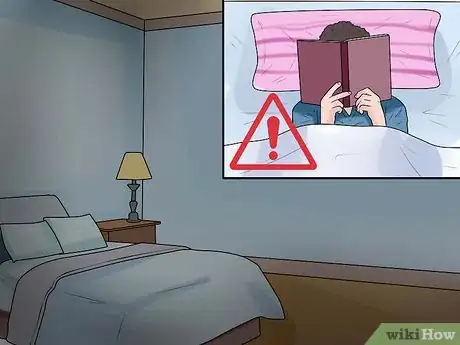



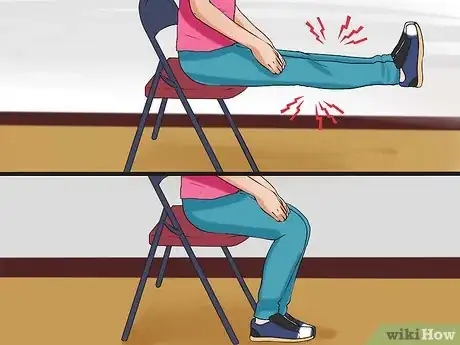
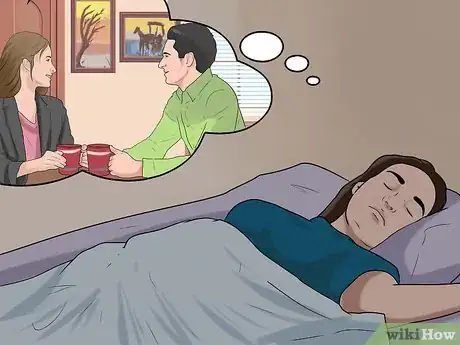
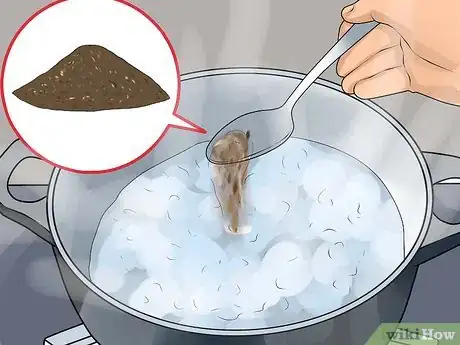
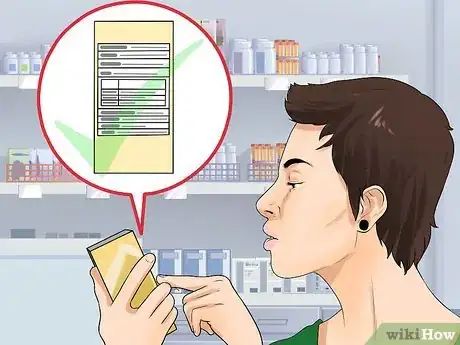

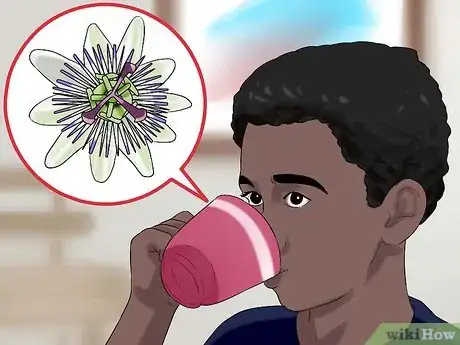
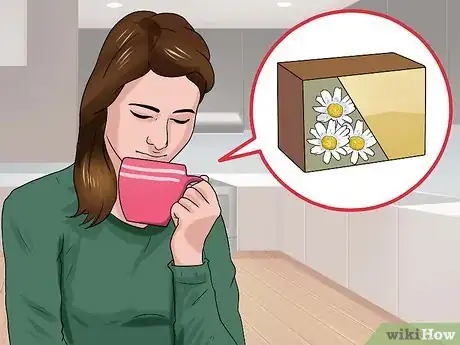

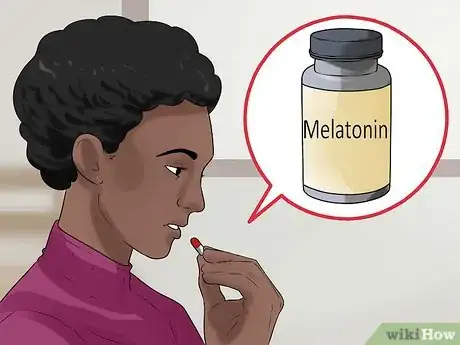
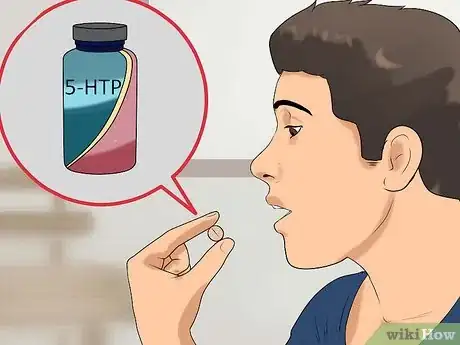
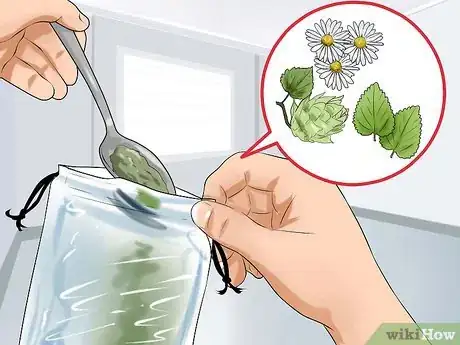
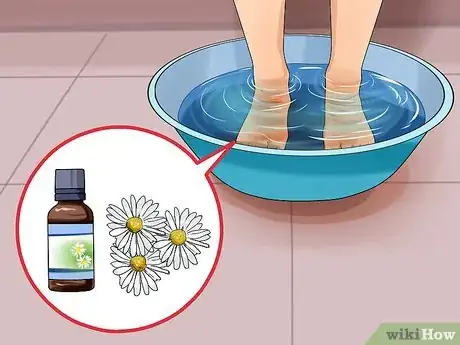

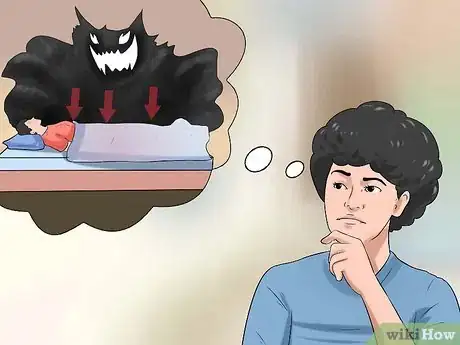
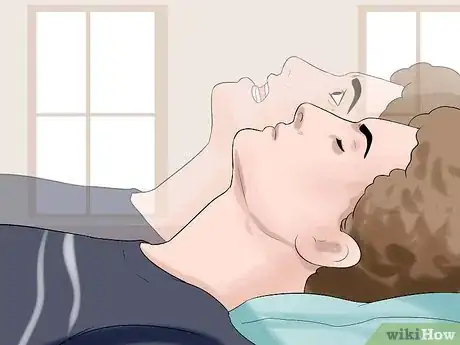
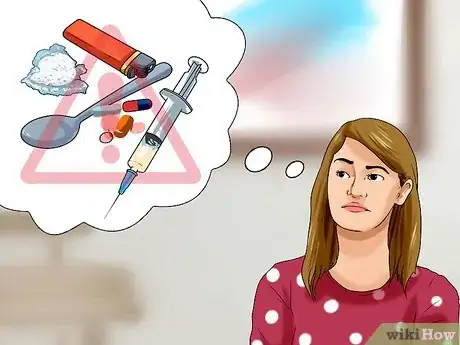
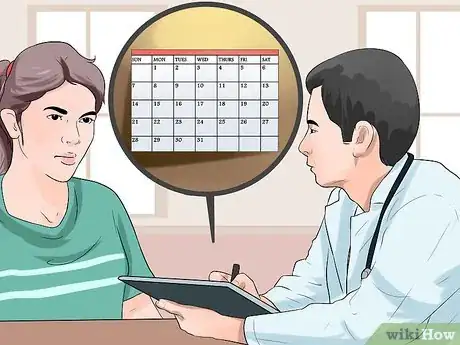


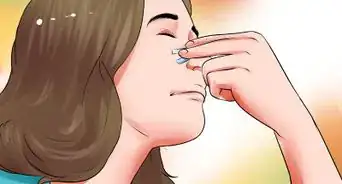







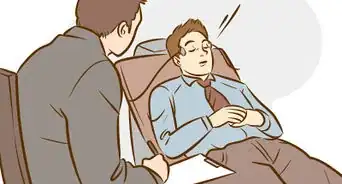
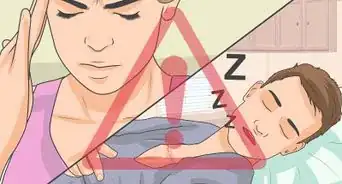
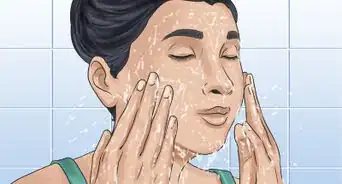









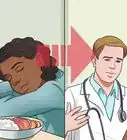
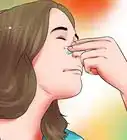




































Medical Disclaimer
The content of this article is not intended to be a substitute for professional medical advice, examination, diagnosis, or treatment. You should always contact your doctor or other qualified healthcare professional before starting, changing, or stopping any kind of health treatment.
Read More...